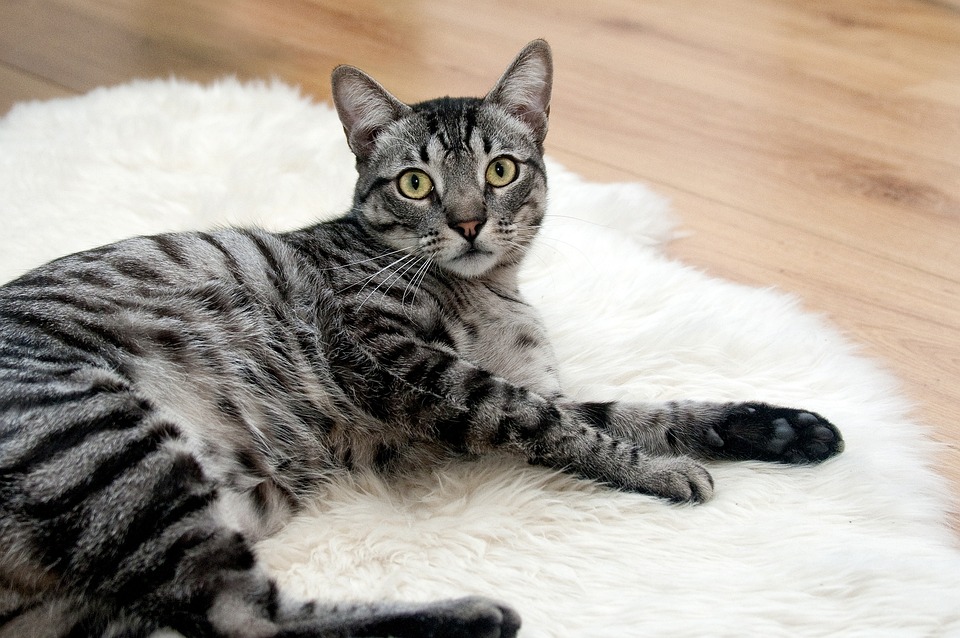Cats, just like humans, can experience anxiety. It is important for pet owners to be able to recognize the signs of anxiety in their feline friends and take appropriate measures to manage and alleviate their stress. In this article, we will discuss common signs of anxiety in cats and provide useful tips on how to help your furry companion feel more relaxed and secure.
Recognizing Anxiety in Cats
Anxiety in cats can manifest in various ways. While some cats may exhibit overt signs of stress, others may display more subtle behaviors. Here are some common signs to look out for:
1. Excessive grooming or licking: If your cat is constantly grooming itself to the point of creating bald patches or irritated skin, it may be a sign of anxiety.
2. Changes in appetite: Cats may either lose their appetite due to stress or resort to emotional eating as a coping mechanism.
3. Avoidance behavior: Cats may hide, become more reclusive, or avoid certain areas of the house when they are feeling anxious.
4. Inappropriate elimination: Stress can lead to litter box issues, causing your cat to urinate or defecate outside the designated area.
5. Excessive vocalization: An anxious cat may meow excessively, especially at night when they are seeking reassurance or attention.
6. Aggression or destructive behavior: Cats may display aggressive behavior towards other animals or even their human companions when they are feeling anxious. They might also engage in destructive activities like scratching furniture or household items.
Managing Anxiety in Cats
Now that you can recognize anxiety in your cat, it’s time to explore some effective strategies to manage and reduce their stress levels. Here are some techniques that can help:
1. Create a safe space: Provide your cat with a designated area where they can retreat and feel secure. This can be a cozy bed in a quiet room or a cat tree with hiding spots.
2. Positive reinforcement: Use treats, toys, and praise to reward your cat’s calm and relaxed behavior. This will help them associate positive experiences with moments of tranquility.
3. Environmental enrichment: Keep your cat mentally stimulated by providing toys, scratching posts, and climbing structures. This can help redirect their anxious energy towards more positive activities.
4. Routine and predictability: Cats thrive on routine, so maintaining a consistent daily schedule can help reduce anxiety. Regular feeding times, play sessions, and sleep routines can provide a sense of security.
5. Pheromone therapy: Consider using synthetic pheromone diffusers or sprays, such as Feliway, which mimic natural feline pheromones. These products can have a calming effect on anxious cats.
6. Consult a veterinarian: If your cat’s anxiety persists or becomes severe, it’s important to consult a veterinarian. They can assess your cat’s overall health and behavior, and may recommend additional interventions such as medication or behavioral therapy.
FAQs about Cat Anxiety
Q: Can cats develop anxiety disorders?
A: Yes, just like humans, cats can develop chronic anxiety disorders that require long-term management.
Q: Can changes in the household trigger anxiety in cats?
A: Yes, major changes such as moving to a new home, the addition of a new family member, or the loss of a companion can cause anxiety in cats.
Q: Should I punish my anxious cat for their behavior?
A: No, punishing an anxious cat can worsen their stress levels and may lead to more behavioral issues. Instead, focus on positive reinforcement and providing a safe environment.
Q: Are there any natural remedies for cat anxiety?
A: While natural remedies like herbal supplements or calming pheromones can help some cats, it’s best to consult with your veterinarian before trying any alternative treatments.
Q: Can cats outgrow anxiety?
A: In some cases, cats may outgrow their anxiety, especially if the underlying cause is temporary. However, it is always important to address and manage their anxiety to ensure their overall well-being.
Remember, understanding and addressing anxiety in cats is crucial for their happiness and overall health. By recognizing the signs and implementing appropriate management techniques, you can help your feline friend lead a more relaxed and contented life.








